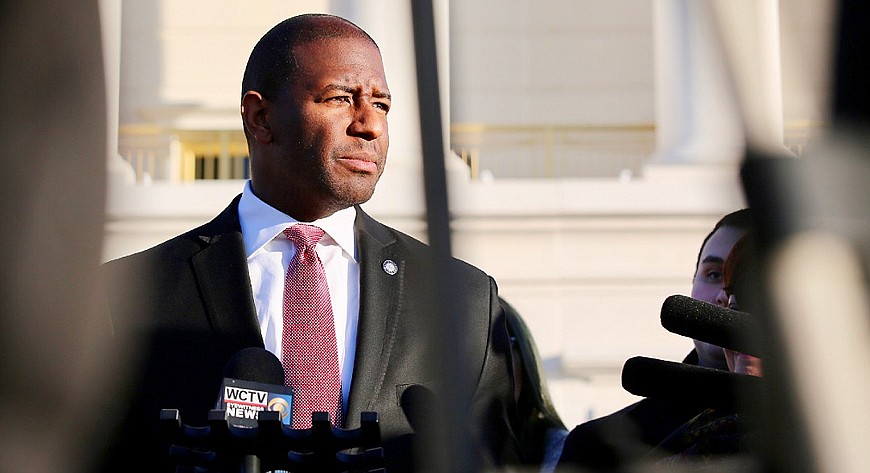- May 15, 2024
-
-
Loading

Loading

The results of last week’s Florida gubernatorial elections sent a message: The story continues.
Voters in the two major political parties are still agitated with pre-Trump, status-quo career politicians and politics. And they’re willing to back those candidates seen as disrupters over the candidates who are deft at politicking without saying anything meaningful.
“I will put Florida first. I will fight for you.” Blah, blah, blah.
Thus the tenor of the times explains why far-left Andrew Gillum and staunch conservative Ron DeSantis won the Democratic Party and Republican Party gubernatorial nominations, respectively. And as we know, the lamestream national media quickly labeled Florida’s gubernatorial race as a proxy for an election between Bernie Sanders and his socialist agenda versus Donald Trump and his nationalist agenda.
To win, however, Gillum and DeSantis somehow must attract more of Florida’s 3,580,090 voters, 27.5%, who are neither Democrats nor Republicans.
So now we can watch: Which of the two gubernatorial candidates over the next two and a half months will move more toward the political center to appeal to the more moderate voters who subscribe to neither party’s purist views?
Of the two, on paper, it would appear Gillum has the tougher task. Consider some of his stated views:
Many of these stated positions, no doubt, will have a populist appeal. But like his national idol, Sen. Sanders, and many standard, hack politicians, Gillum offers no regard to the economics — or the economic consequences — if he had the power to wave a magic wand and adopt his agenda. Who would pay for his Easter basket of government-controlled programs?
Ask the non-stoned people of Colorado what legalizing recreational marijuana has done for the welfare of that state. Yes, marijuana sales taxes are pouring into the state’s coffers, but at a heavy social and economic price. Just do a search of news stories from Colorado’s newspapers.
What’s more, a 2.25 percentage-point increase in the state’s corporate income tax would do little to fund Gillum’s list of wants. He clearly doesn’t know, or refuses to accept, that long-accepted economic truism: Corporations don’t pay taxes, people pay taxes. When you raise taxes and regulations on businesses, consumers and employees are punished: prices go up, wages stagnate and companies hire fewer people.
For two decades or more, noted economists Arthur Laffer and Stephen Moore have well-documented data tracking the economic records of the 50 states. The data show the following never changes: States with rising tax and regulatory burdens have the slowest-growing economies and slowest-growing personal incomes. And states with falling tax and regulatory burdens have the fastest-growing economies and personal income.
Nowhere has that economic record been better demonstrated over the past eight years than in Florida. Andrew Gillum rejects the policies and results of Gov. Rick Scott and the Republican Legislature.
Stranger things happen in politics, but it’s difficult to see how Gillum can move his leftist agenda to the center. He says he is a candidate for the people. Economically, he’s not.